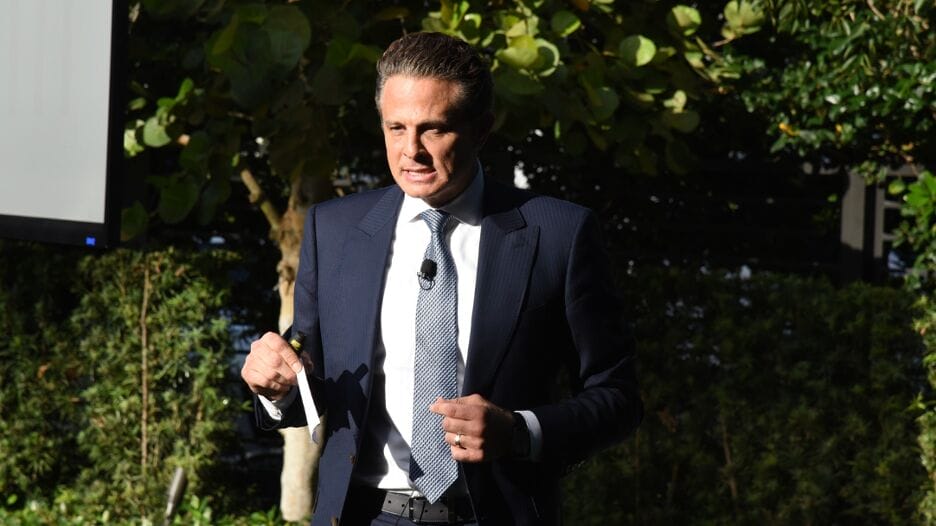When it comes to setting kids up for long-term financial independence, most parents focus on college savings or custodial accounts. But for high-net-worth families, the conversation needs to go deeper, blending financial education, behavioral discipline and long-term estate planning. According to Jeffrey Fratarcangeli, managing principal of Fratarcangeli Wealth Management, early exposure to money – and how it works – is critical.
Start With Accountability, Not Allowance
“Just because a child grows up in a financially comfortable home doesn’t mean they should be shielded from how money is earned,” said Fratarcangeli. “We give our children the opportunity to earn an allowance through chores, goals or even helping at client events.”
His children don’t receive money simply for existing; they earn it, track it and learn to make decisions with it. That structure can begin surprisingly young. Fratarcangeli shared a recent story of his youngest son, who received cash gifts for his First Communion and chose to invest them.
“I said, ‘Be at my office Monday after school.’ And sure enough, 4 p.m. on the dot, he showed up ready to invest,” he said. “We talked through the companies he likes – Starbucks, Barnes & Noble – and picked a few stocks together.”
By linking money to both effort and real-world experiences, children begin to see financial tools as something they can actively use and influence, not just passively inherit.
Use Investment Accounts to Teach, Not Just Save
Fratarcangeli encourages using tools like Uniform Gifts to Minors Act (UGMA) accounts not just for long-term savings, but as live teaching labs.
“Each of my kids has their own UGMA account. One I contribute to, one they contribute to,” he explained. “They pick the stocks, track performance on an app and start to see how markets move.”
For younger children, 529 college savings plans remain a foundational tool for saving for college.
“The tax-free growth for education is great, but what’s underutilized is how flexible they’ve become,” he noted. “You can now roll leftover funds into a Roth IRA or pass them to another family member, giving them lasting value.”
Fratarcangeli is also closely watching the evolution of the $1,000 federally seeded “MAGA” accounts for newborns. “They’re compelling,” he said. “Tax-deferred growth, flexibility in how the funds are used – from education to entrepreneurship – and the ability to contribute annually make them a smart tool for long-term capital formation.”
DEEPER DIVE: Top 10 Arizona ZIP codes people are moving to in 2025
INDUSTRY INSIGHTS: Want more news like this? Get our free newsletter here
Host Family Meetings to Build “Intellectual Capital”
Fratarcangeli believes the financial planning process should include transparency and education, not just documents.
“Every year, we host a ‘family meeting’ for clients who want their kids to understand the estate plan. We bring them into the room,” he said.
These sessions are designed to avoid confusion and resentment after a parent passes away.
“I’ve seen too many situations where kids say, ‘Why didn’t Mom and Dad trust me? Why are there restrictions?’” he explained. “When you walk them through the reasoning now, they’re better prepared and more appreciative later.”
Avoid the Biggest Mistake: No Work, No Purpose
Fratarcangeli warns that the worst misstep a parent can make is handing over money without structure.
“Lump sums without education do real damage,” he said. “Affluent families need to make kids work, give them goals and build purpose into the process.”
In some cases, that means letting them run part of a family foundation or spearhead charitable projects that align with their interests.
“We involve our kids in the Boys & Girls Club and in animal rescue charities that my wife is passionate about,” he said. “It’s not about writing checks, it’s about building empathy and responsibility.”
Set the Timeline, But Be Flexible
So when should all of this start?
“In my experience, 14 is a good age,” Fratarcangeli said. “But every kid is different. My youngest picked things up faster just by watching his older brothers. You have to read the room.”
Whether it’s investing birthday money, helping with household budgets or attending annual estate planning discussions, early exposure pays long-term dividends.
“It’s not about creating a trust fund mentality,” he said. “It’s about building a financially responsible person who can carry the family forward with discipline and purpose.”
For more insight from Jeffrey Fratarcangeli, visit www.fratarcangeliwealth.com.




